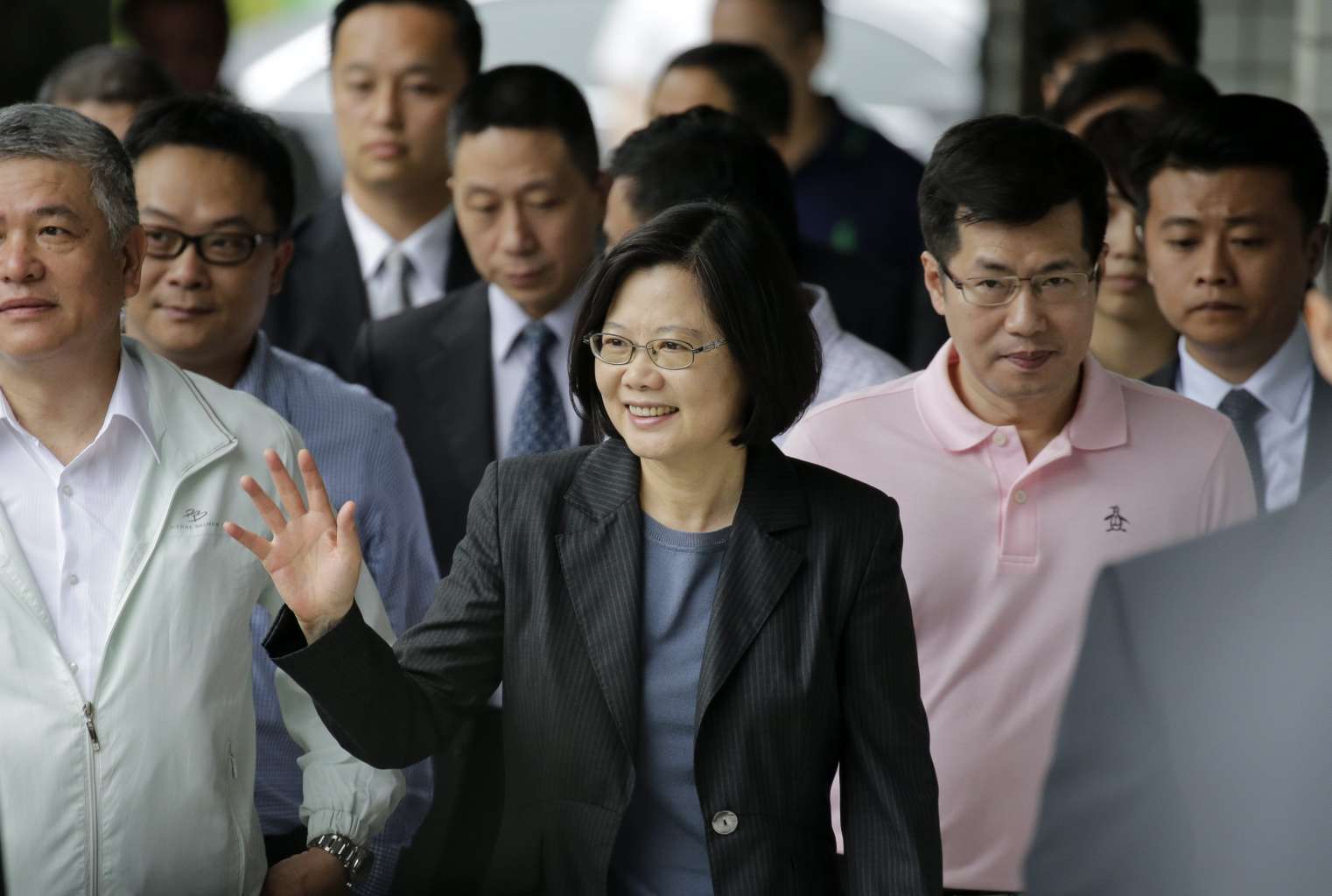Taiwan's new government drops lawsuit against protesters
Sign up now: Get insights on Asia's fast-moving developments

Taiwan President Tsai Ing-wen (centre) waves to supporters as she arrives to vote for party officials in Taipei, Taiwan, on May 22, 2016.
PHOTO: EPA
Follow topic:
TAIPEI (AFP) - Taiwan's new government announced on Monday (May 23) it has dropped a lawsuit against 126 protesters who stormed the cabinet headquarters in 2014 to protest against a controversial China trade pact.
President Tsai Ing-wen, from the Beijing-sceptic Democratic Progressive Party, (DPP) and her new government took office on Friday, following eight year of cross-strait rapprochement under her predecessor Ma Ying-jeou of the Kuomintang (KMT).
Although Ma oversaw an unprecedented thaw in ties with China, public sentiment in Taiwan had turned against his approach in recent years, - leading to the so-called Sunflower Movement which occupied parliament to demonstrate opposition to the trade pact.
Some protesters also infiltrated government headquarters, pulling down barbed-wire barricades outside and using ladders to break into offices on the second floor until riot police used water cannon to dislodge them.
Premier Lin Chuan defended the decision to drop the lawsuit against the protesters, saying the movement had its "legitimacy". It was only the second document he had signed since taking office.
"The Sunflower Movement's demand has become a social consensus. Parliament is legislating the oversight bill on cross-strait agreements based on such a demand, which highlights the movement's legitimacy and social contribution," Lin said in a statement.
Among the key demands of the Sunflower activists was for parliament to pass an oversight bill to monitor all agreements with China. They complained that trade deals with China were agreed in secret and would leave Taiwan vulnerable to Chinese influence.
The opposition KMT said it regretted that the new government made a "reckless" and "irresponsible" decision out of political considerations.
The cabinet "tolerated people who entered government offices and damaged public property and approved of the crowd achieving political goals with illegal means. A democracy without the rule of law is a fake democracy," it said in a statement.
Taiwan and China split in 1949 after a civil war but Beijing still claims the island as part of its territory awaiting reunification, by force if necessary.
Beijing has warned Taiwan's new president against any move to declare formal independence. It threatened to cut contact unless Tsai states support for the "one China" principle.

